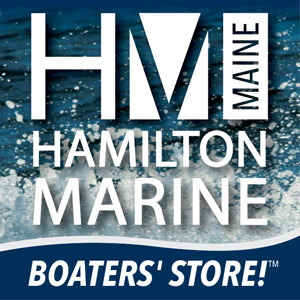By Sheila Dassatt
There has been a lot of talk lately about the duty of the sternman and what is fair and what is not fair. I hope that you all read this little article and help me with the answer to this. This is a discussion that we have seen a lot on social media, which seems to either be helpful or turns into a rant. I stay in touch with it so we can get a feel of where this is all going.
To my personal understanding, most start when they are quite young with their grandfather and father, traditionally. They teach you how to cut bait, salt the bait and fill the bait bags. This is very important to the success of catching your lobsters. I remember my Dad teaching me how he wanted his bait bags, which was to fill it firm with herring so it looks like a baseball. Of course, the bags were smaller bags, not the great big ones. Dad said that if the bags were firm, you don’t need those great big bags, it’s a waste of good bait.
Now the description is probably different for each family or fisherman. In my case, I helped to get the traps and the boat ready as well. We painted buoys, the bottom of the boat and did what we needed to do, sometimes the topsides needed attention and some paint too. Then there were ropes to get ready. This was all in preparation to loading the traps and baiting and setting them when it came time. This is what I call starting at the beginning, not at the top. This is the best way to learn the job, which every part of it is very important. There is no job on a fishing vessel that isn’t very important to the success of the catch for the season.
There has been a lot of talk about fairness of how to get paid. That varies from one captain to another, too. Some pay a percentage off of the top, before expenses, and some pay after the expenses. Then there are those that pay through catch. There are some that pay an hourly wage. Which seems the most appealing to you?
For some sternmen, it is a seasonal job, that ends when the last trap is on the bank. Then there are those that work in the shop with the captain over the winter to repair or help build traps for the next season. This involves replacing runners, patching wire and mending the heads. This is generally hourly work unless there is an arrangement for over the winter with percentage.
This is the traditional way of doing this, unless you are just hired because the captain needs a sternman and you are totally a greenhorn. Then it can be much more challenging for both of you. The captain is teaching as you go in this case.
I was always taught, in my case with my Dad, that I needed to be at the dock on time or he will leave without me and then hear about it loud and clear when he gets in. I only had this happen once and yes, he did leave me at the dock! And I had the sandwiches and the coffee thermos, too. What I’m driving at is that it is a commitment, and I’m not preaching it, I learned it the hard way myself.
Another thing that I learned is that the sternman should know all about safety and running the boat in case of emergency. There was a circumstance when Dad had the rope around his leg and heading over. I was told to take the boat out of gear and hang on to the rope until we could back it down. This is very important! Yes, Captains, a sternman can also save your life if need be. It’s a two-way street, they need to treat the sternman with respect, also.
Do you think that there should be a separate license for the sternman? So he shares part of the commitment to the job. This has been a question for a long time. Most are working on a license that the captain has provided, so it is easy to walk onto the job or walk off without any notice. There may be three or four sternmen that my come and go with not even a nickel in it. I can vouch for this, because we had this also happen, usually when it’s time for the traps to come in. So, a big question is what is fair and what isn’t? What do you think is fair? I can ask this from my own experience, which has been on both sides of the question. When our sternman didn’t show up, we had to find someone that could help us out, in one case, my brother went out to help us bring the gear in.
This goes back to family tradition once again. If it’s in your blood, and you grew up in the fishery, you are more apt to stick with it to the end of the season.
It would be best to take the safety training course that John McMillan of McMillan Offshore Survival Training offers. There is nothing more important than knowing how to save one another or save yourself if you are working on a fishing vessel.
Take care and stay safe. Please let me know how you feel about my questions. [email protected], Thank you!



